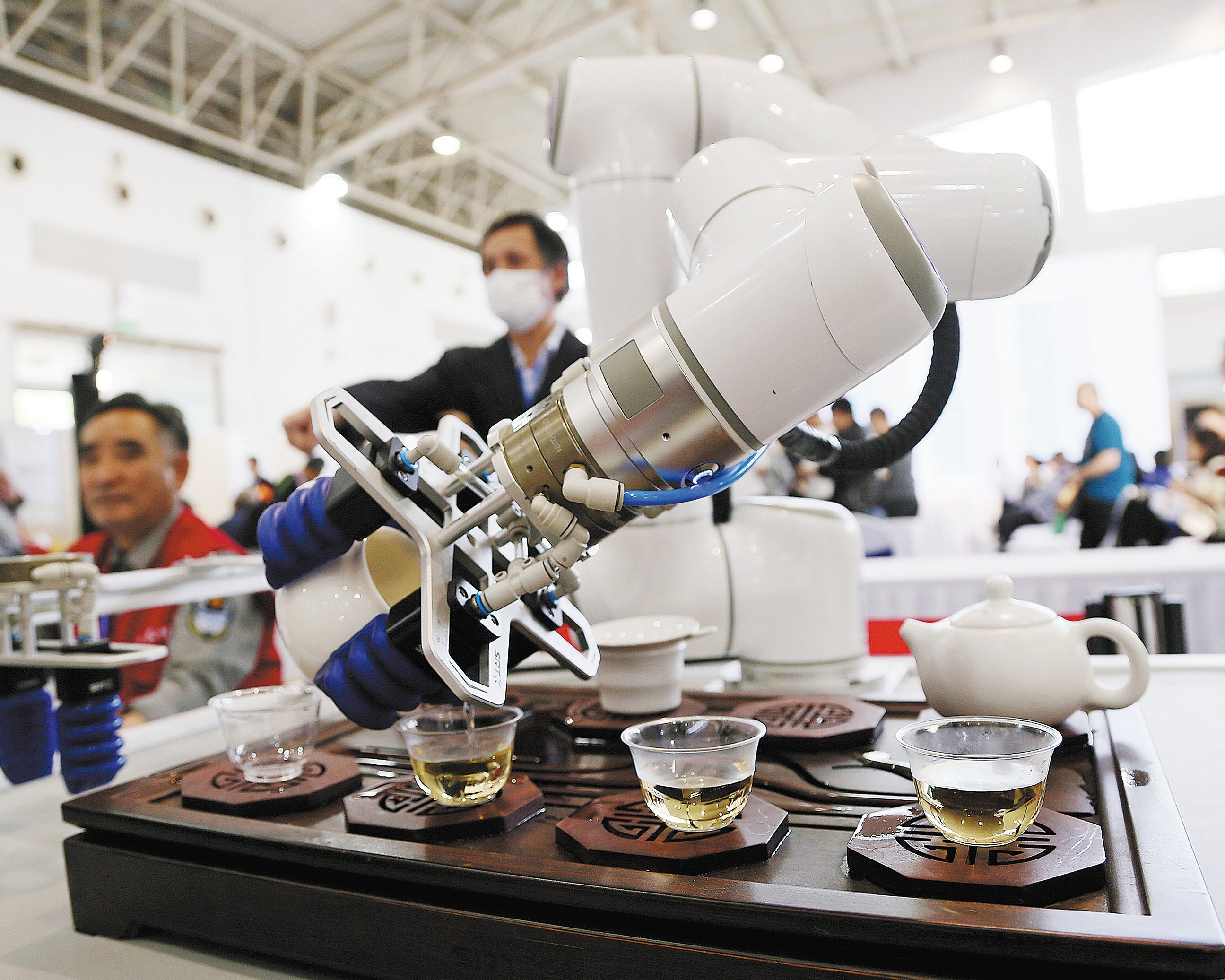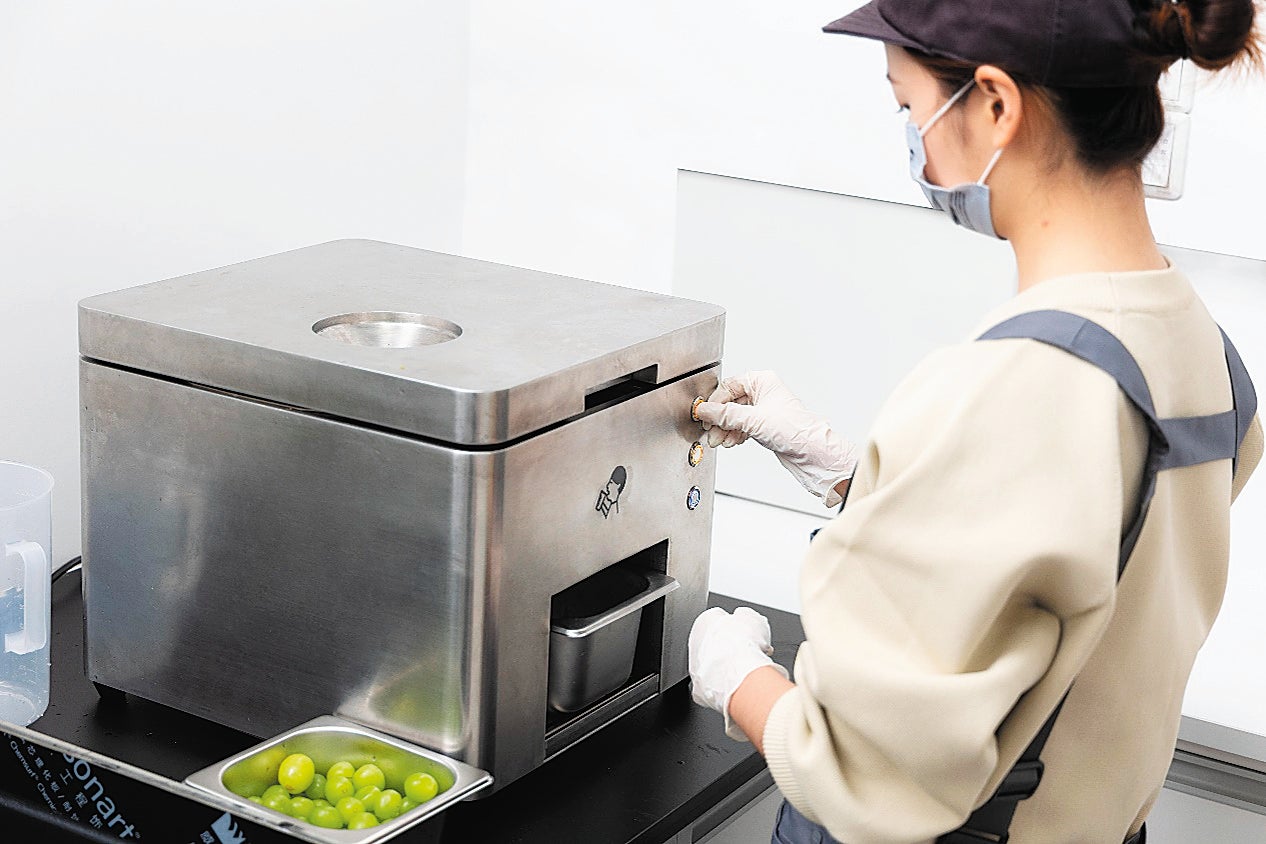Automation adds new flavours to catering business
THE ARTICLES ON THESE PAGES ARE PRODUCED BY CHINA DAILY, WHICH TAKES SOLE RESPONSIBILITY FOR THE CONTENTS

China’s pursuit of new quality productive forces, which are characterised by innovation, digitalisation and high-end technology, is injecting new momentum into the country’s catering industry.
Evidence of this was found on a recent morning at the entrance/exit of Niujie subway station in Beijing, where a pancake vending machine busily made and served jianbing (savoury pancakes). Passengers, passersby and local residents lined up to place orders using the machine’s screen and scanned the QR code to pay.
After payment was done, a pancake-making robot at the back of the vending machine automatically spread the pancake, added a fried egg, turned the pancake over, dabbed the sauce using a brush and added the seasoning. Some three minutes later, the hot pancake was packed into a bag and delivered to the consumer. The entire process is automated.
“The jianbing tastes fine, almost like the handmade ones,” said a consumer. “But there are places where the sauce is not evenly spread.”
By 11 am, the pancakes were all sold out and a staff member appeared on the scene to carry out maintenance work on the machine.
“The pancake vending machine is still in trial operations, and the daily yield rate is limited. The pancake-making robot can analyse and learn from existing data after work every day. When the vending machine is officially put into full-fledged use, it should be capable of making 400 pancakes a day,” said the staff member.
Restaurants in the city are also applying cutting-edge technologies to increase efficiency and cut costs. Yummy Health, a restaurant that has digitalised most of its operations, located in the Galaxy Soho area of Beijing, employs a robot to stir-fry certain foods.
“The simplest quick dish can be cooked in about 90 seconds, while chicken curry, which is the most time-consuming dish that our restaurant prepares, now takes only five minutes. A stir-fry robot costs about 50,000 yuan (£5,545), but if you recruit a chef, the cost will be nearly 100,000 yuan (£11,090) per year. Mind you, the robot is still far from reaching its full capacity,” said Chen Yun, founder of Yummy Health.
The beverage sector is also further integrating high-end technology and automated devices into its operations. During the 4th China International Consumer Products Expo held in Haikou, Hainan province, a wide range of smart tea-making devices were on display. Chinese drink chain Heytea showcased a split-type intelligent tea machine capable of producing a bottle of new-style milk tea in three seconds flat.

The device is Heytea’s latest effort to automate milk tea production. Other smart devices include intelligent scales, smart tea dispensers, automatic peeling machines, corers, lemon squeezers, dicers, and intelligent steaming and boiling machines. From raw material preparation and management to tea blending, the production efficiency has improved a great deal, said Heytea.
According to a report published by the National Bureau of Statistics last month, in the first quarter of this year, total sales revenue of China’s catering industry totaled 1.34 trillion yuan (£148.6 billion), up 10.8 per cent year-on-year. Sales revenue of catering enterprises that are above a designated size jumped 9.2 per cent year-on-year to 355.1 billion yuan (£39.4 billion).
“In the first quarter, sales revenue of China’s catering industry accounted for 11.2 per cent of the total retail sales of consumer goods. The growth rate of the industry outpaced that of the latter by 6.1 percentage points. Given the recovery of normal production and life, and supportive policies, the catering industry has been rapidly reviving, demonstrating strong resilience and great vitality,” said Yang Liu, head of the China Cuisine Association.
According to a report from the association, with the further improvement of digital infrastructure, the trend of smart devices and appliances is ubiquitous, including in supply chains, corporate management, marketing and customer service.

Bookmark popover
Removed from bookmarks